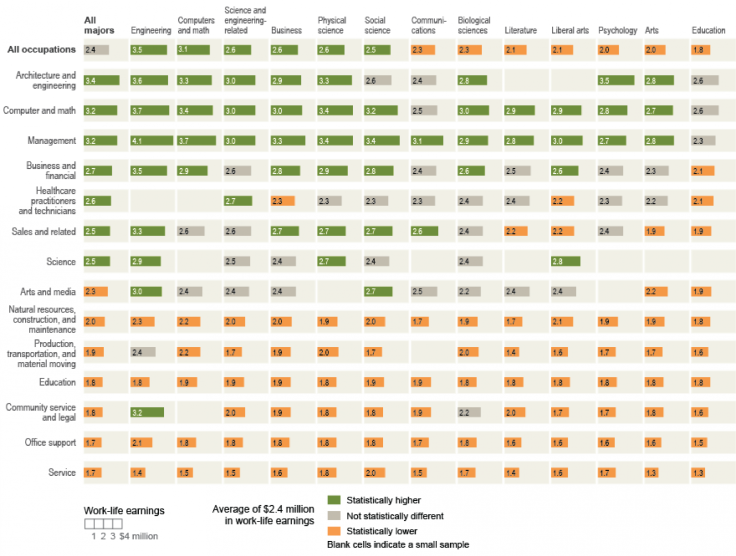Earnings By Major And Occupation: New Data From The US Census Bureau [CHART]
The U.S. Census Bureau has for decades asked U.S. residents what level of education they have attained. But in 2011, survey questions went a little deeper -- for the first time, the American Community Survey, a deeper Census Bureau survey than the 10-year count, began to ask undergraduate degree holders what they majored in.
While it comes as no surprise that certain majors were correlated with much higher-paying jobs than others, the glaring disparity between the top and bottom earners among those who held a bachelor’s degree can be quite striking.
A new report from the American Community Survey puts the average lifetime earnings of an undergraduate degree holder without an advanced degree at $2.4 million. But there are many who make far less than that over the course of their careers, and those who make much, much more.
From the report:
Even within one level of attainment — the bachelor’s degree — what one chooses to study in college and the careers pursued after college can also mean a difference of $2.8 million.
A recent NPR’s Planet Money podcast, “What’s Your Major?” contrasts two recent graduates, one with a degree in petroleum engineering, and another with a degree in psychology.
The petroleum engineer made $110,000 a year, right out of college, while the psychology major made $36,000 a year -- less than a third of what the former was making.
Here’s an interesting graphic, put together by the Census Bureau, that charts how much graduates of each major earn in a lifetime, based on what occupations they finally end up in.
This chart only takes into account people who have an undergraduate degree but do not have a master’s degree or any other advanced degree:

© Copyright IBTimes 2024. All rights reserved.












